Ethically Sourced Coffee: Everything You Need to Know
- by Rock Roasters
Did you know that over 70 percent of the world’s coffee is produced by smallholder farmers who often face unfair wages and harsh conditions? These numbers matter to everyone who enjoys their morning brew because the story behind each cup shapes entire communities and fragile ecosystems. By understanding what ethically sourced coffee really means, you can choose beans that protect both people and the planet while making your coffee ritual more meaningful.
Table of Contents
- Defining Ethically Sourced Coffee Standards
- Certification Types And Ethical Claims Compared
- Key Practices In Ethical Coffee Supply Chains
- Responsibilities Of Coffee Roasters And Retailers
- Comparing Ethical Coffee With Conventional Options
Key Takeaways
| Point | Details |
|---|---|
| Ethical Coffee Sourcing | Involves fair compensation, environmental protection, and community investment for sustainable coffee production. |
| Certification Types | Different certifications (e.g., Fairtrade, Organic) offer distinct benefits, helping consumers make informed choices aligned with their values. |
| Supply Chain Transparency | Ensures traceability and authenticity from bean to cup, which enhances the integrity of coffee products. |
| Responsibility of Roasters | Coffee roasters must foster direct relationships with producers and ensure sustainable practices while educating consumers. |
Defining Ethically Sourced Coffee Standards
Ethical coffee sourcing represents a comprehensive commitment to sustainable, fair, and responsible practices throughout the entire coffee production journey. According to the International Coffee Agreement 2022, this means establishing standards that protect coffee farmers, support local communities, and preserve environmental ecosystems while delivering exceptional quality coffee.
Ethical sourcing goes beyond simple transactional exchanges. It encompasses critical elements like fair compensation, safe working conditions, environmental preservation, and transparent supply chains. The Fairtrade Foundation’s Shared Impact Initiative highlights the importance of creating longer-term supply arrangements that provide stability and genuine economic opportunity for coffee producers in developing regions.
Key Standards for Ethical Coffee Sourcing
- Fair Wages: Ensuring farmers receive prices that cover production costs and support dignified living standards
- Environmental Protection: Promoting sustainable farming practices that maintain biodiversity and reduce ecological impact
- Community Investment: Supporting local infrastructure, education, and healthcare initiatives in coffee-growing regions
- Transparency: Providing clear documentation about coffee origins, production methods, and supply chain practices
By prioritizing these comprehensive standards, coffee roasters like Rock Roasters demonstrate a genuine commitment to responsible sourcing that benefits both producers and consumers. The goal is creating a more equitable, sustainable coffee ecosystem that respects human dignity and environmental stewardship.
Certification Types and Ethical Claims Compared
Navigating the world of ethical coffee certifications can feel like decoding a complex puzzle. According to the Sustainable Coffee Guide, multiple certification types exist, each with unique standards and focuses that help consumers make more informed purchasing decisions about responsible coffee production.
Certification standards range from comprehensive global programmes to more specialised regional initiatives. The Fairtrade Foundation’s Shared Impact Initiative highlights how these certifications aim to provide producers with economic security and encourage sustainable practices. Each certification represents a different approach to addressing ethical challenges in coffee production.
Major Ethical Coffee Certification Types
Here’s a comparison of the main ethical coffee certifications:
| Certification Type | Key Focus | Main Benefits |
|---|---|---|
| Fairtrade | Economic fairness Social development |
Minimum price guarantee Community support |
| Organic | Natural farming | No synthetic chemicals Healthier ecosystems |
| Rainforest Alliance | Environmental sustainability Worker welfare |
Biodiversity protection Better working conditions |
| Direct Trade | Transparency Farmer relationships |
Traceable sourcing Higher farmer income |
- Fairtrade Certification: Guarantees minimum prices for farmers and promotes social development projects
- Organic Certification: Ensures coffee is grown without synthetic pesticides or fertilisers
- Rainforest Alliance: Focuses on environmental sustainability and worker welfare
- Direct Trade: Emphasises direct relationships between roasters and farmers, often with transparent pricing
By understanding these different certification types, coffee lovers can make choices that align with their values. Some certifications prioritise environmental sustainability, while others focus on economic fairness or community development. Rock Roasters recognises that each certification represents a crucial step towards a more equitable global coffee ecosystem.
Key Practices in Ethical Coffee Supply Chains
Ethical coffee supply chains represent a complex network of practices designed to ensure transparency, fairness, and sustainability from bean to cup. According to the Government Chemist’s review, maintaining supply chain integrity involves sophisticated analytical methods that combat potential fraud and ensure the authenticity of coffee products.
Supply chain transparency goes far beyond simple tracking. Modern ethical sourcing incorporates advanced techniques like isotope ratio analysis, which allows producers to verify the precise regional origin of coffee beans. This scientific approach helps prevent misrepresentation and supports genuine traceability throughout the production process.
Key Practices for Ethical Coffee Sourcing
- Direct Relationships: Establishing direct connections between roasters and farmers
- Comprehensive Traceability: Documenting every stage of coffee production
- Fair Compensation: Ensuring farmers receive sustainable prices for their crops
- Quality Verification: Using scientific methods to confirm bean authenticity and origin
These practices demonstrate a commitment to responsible sourcing that extends well beyond simple transactions. By prioritizing detailed tracking and scientific verification, coffee roasters like Rock Roasters contribute to a more transparent and equitable global coffee ecosystem. The goal is creating a supply chain that respects both human dignity and environmental sustainability.
Responsibilities of Coffee Roasters and Retailers
Ethical coffee roasters and retailers carry profound responsibilities that extend far beyond simply selling a product. According to research from the University of Leicester, these responsibilities include direct partnerships with coffee farmers and proactive sustainability initiatives that transform the entire coffee ecosystem.
Sustainable sourcing demands a comprehensive approach that addresses multiple critical dimensions. As demonstrated by the University of Huddersfield’s commitment, this means ensuring coffee certifications like Fairtrade and Rainforest Alliance, while simultaneously implementing waste reduction strategies such as promoting reusable cups and minimizing environmental impact.
Core Responsibilities in Ethical Coffee Procurement
- Farmer Partnerships: Developing direct, transparent relationships with coffee producers
- Certification Verification: Ensuring rigorous ethical and environmental standards
- Sustainable Packaging: Implementing eco-friendly packaging solutions
- Consumer Education: Transparently communicating sourcing and production practices
These responsibilities require continuous commitment and genuine investment in both human and environmental welfare. For coffee lovers seeking transparency, wholesale coffee options represent an opportunity to understand and support these ethical practices directly. The ultimate goal is creating a coffee supply chain that respects farmers, consumers, and our planet’s delicate ecosystems.
Comparing Ethical Coffee With Conventional Options
The difference between ethical and conventional coffee is far more than a simple price tag. According to the Sustainable Coffee Guide, ethical coffee represents a holistic approach to production that fundamentally challenges traditional sourcing methods by prioritizing environmental and social sustainability.
Conventional coffee production often follows a commodity-driven model that minimizes farmer compensation and overlooks environmental consequences. In contrast, the Fairtrade Foundation’s Shared Impact Initiative demonstrates how ethical sourcing provides producers with economic security and opportunities to invest in sustainable agricultural practices that benefit entire communities.
Key Differences Between Ethical and Conventional Coffee
- Farmer Compensation: Ethical coffee ensures fair wages, while conventional models typically exploit labour
- Environmental Impact: Sustainable practices versus industrial agricultural methods
- Community Investment: Reinvesting in local infrastructure and education
- Transparency: Detailed tracking of coffee origin and production processes
These distinctions mean more than just a superior product.
For coffee enthusiasts seeking exceptional beans with meaningful impact, exploring options like our Ethiopian single-origin coffee represents a direct way to support ethical agricultural practices. The choice isn’t just about taste—it’s about creating positive global change, one cup at a time.
Discover Truly Ethical Coffee in Every Cup
You want coffee that tastes incredible and actually supports coffee farmers and their communities. You have learnt how ethically sourced coffee means more than just a label. It is about fair wages, true transparency, environmental care, and a responsible supply chain that respects everyone involved. Yet finding a roaster who honours these values from start to finish can often feel overwhelming.
Now you do not need to compromise on your beliefs or the richness of your morning brew. At Rock Roasters, our small batch approach in the Channel Islands guarantees every bean is sourced with care. Explore our full range and decide for yourself. Experience the difference of authentically ethical coffee in our Shop All selection or tailor your routine with our coffee subscription options.

Make the choice today that supports both quality and conscience. Visit Rock Roasters to shop ethically sourced coffee with total confidence. Brew your next cup knowing you are part of a responsible future for coffee.
Frequently Asked Questions
What is ethically sourced coffee?
Ethically sourced coffee refers to coffee that is produced using sustainable, fair, and responsible practices throughout the entire production process, ensuring fair compensation for farmers, environmental protection, and support for local communities.
What are the key standards for ethical coffee sourcing?
Key standards for ethical coffee sourcing include fair wages for farmers, environmental protection through sustainable practices, community investment in local initiatives, and supply chain transparency.
What are the main types of ethical coffee certifications?
The main types of ethical coffee certifications include Fairtrade, Organic, Rainforest Alliance, and Direct Trade, each focusing on different aspects such as economic fairness, environmental sustainability, worker welfare, and direct relationships between farmers and roasters.
How does ethical coffee differ from conventional coffee?
Ethical coffee differs from conventional coffee through its emphasis on fair compensation for farmers, sustainable farming practices, community investment, and greater transparency in sourcing methods, whereas conventional coffee often prioritizes profit over these values.
Recommended
- Posted in:
- what is ethically sourced coffee





